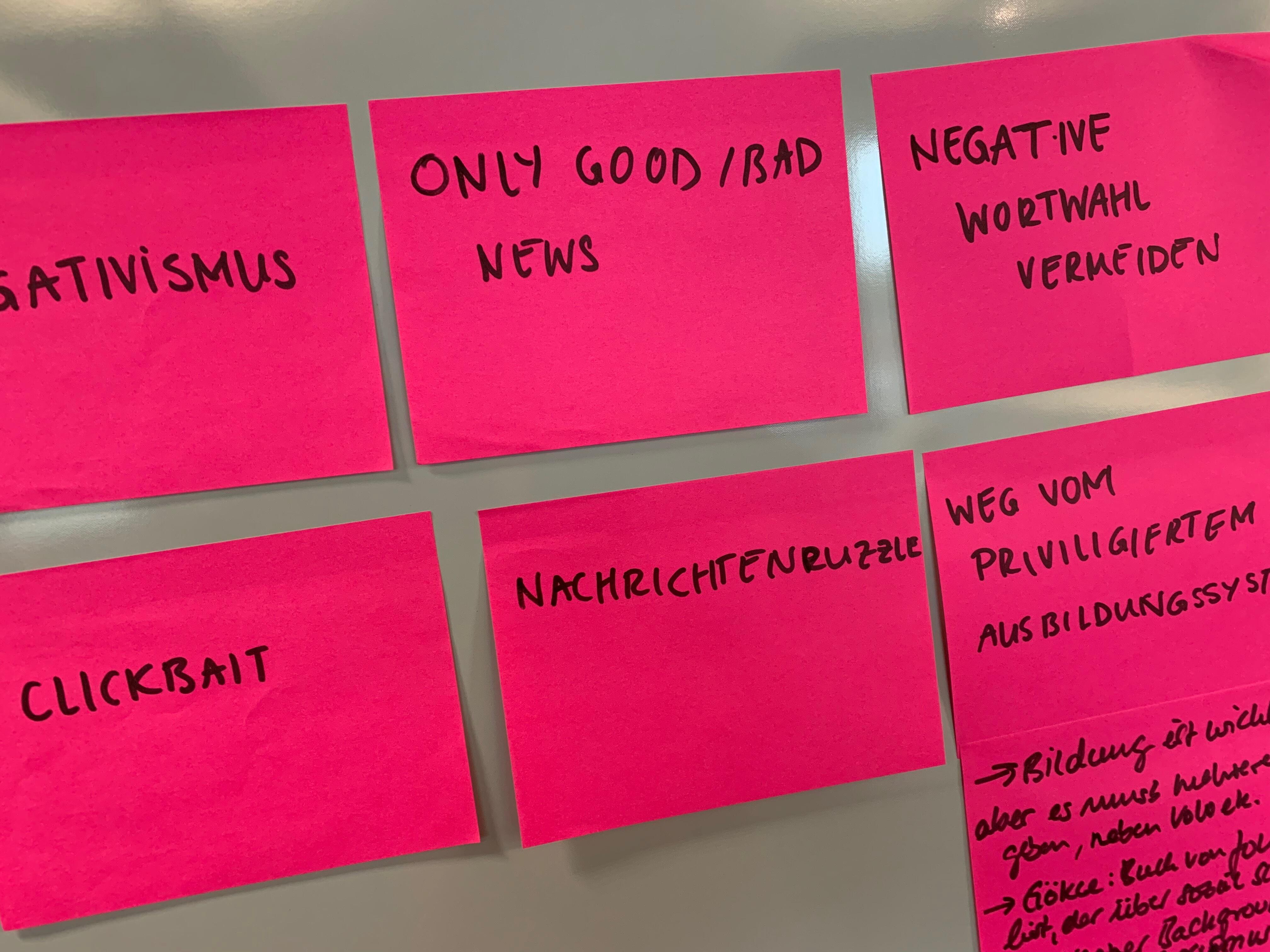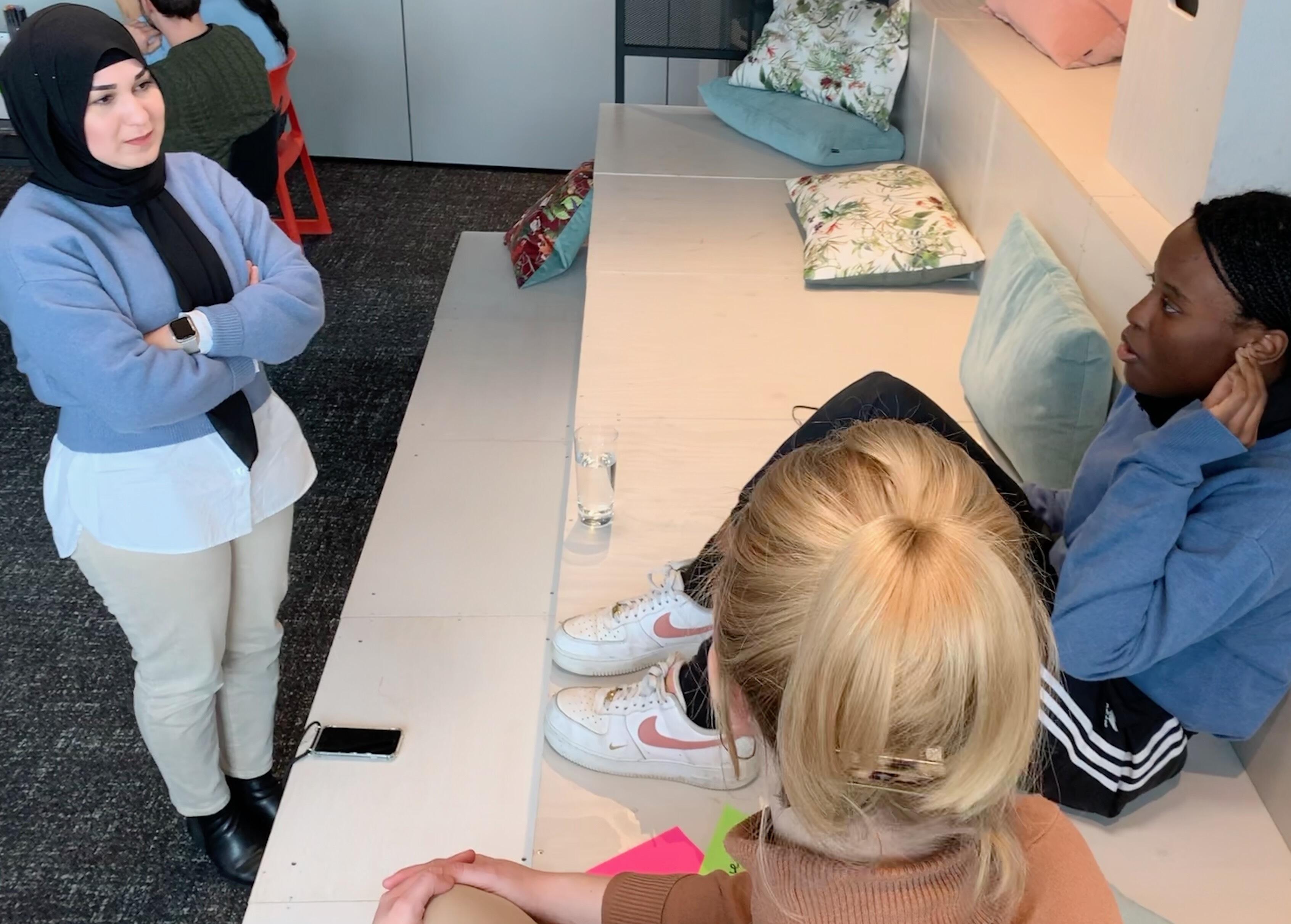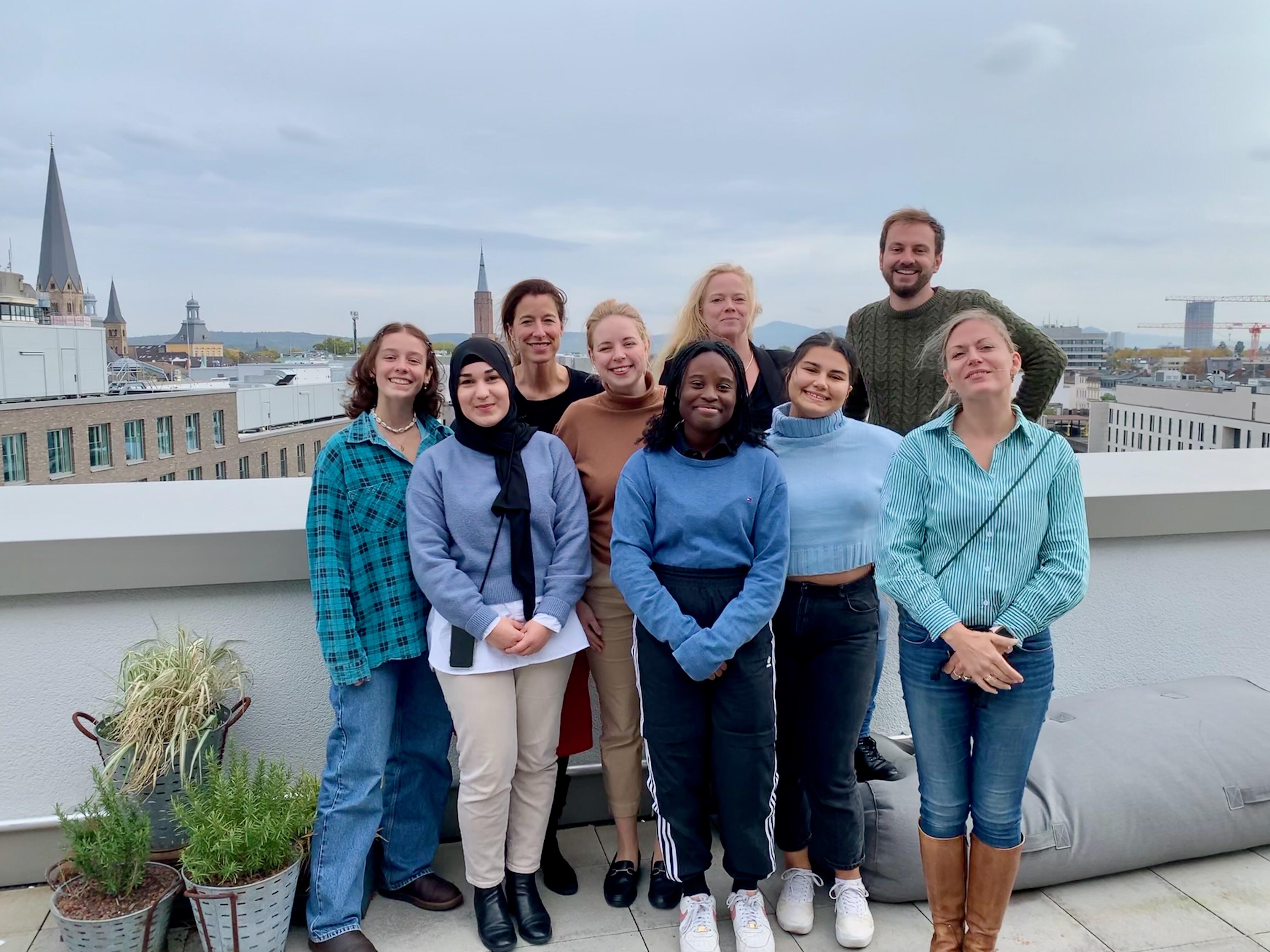"Many adults think that teenagers aren't interested in anything. But there is actually always something that interests us – it's just that the media frequently doesn't offer the right kind of access."
The Citizen Advisory Board is the Bonn Institute's second advisory body alongside our prominent Board of Trustees. Its members change every year and while on the board, they share their views on media and journalism with us. We value media users just as much as experts in what we do, because we are convinced that journalism can only have a good future if we succeed in focusing on people's needs.
This year, we had the pleasure of spending one day with Dina (18), Gökce (20) and Romance (17). The three of them dedicate some of their free time to working at Salon5, a branch of the German nonprofit, nonpartisan investigative newsroom CORRECTIV. Salon5 makes media for young adults, by young adults, and the trio produces social media content and podcasts.
Dina, Gökce and Romance gave us very clear insight into their needs and experiences. "I don't want to have to google to understand what was said in the news. Language makes a difference when it comes to reaching young people", one of them said. Another one added, "Sometimes this is harder than you think. I tutor, and I also notice doing that how you need to speak the language of teenagers if you want them to understand."
The three young women all shared the same view when it came to what bothers them about the media: Too much negativity and not enough relevance. Many young people don't even understand what the news has to do with them, they explained. The trio's statements correspond to findings in the UseTheNews Study by the Leibniz Institute for Media Research about the news use of adolescents and young adults.
Another thing that bothers the young journalists: The persistently high hurdles to entering journalism. The prevalence of unpaid internships makes it nearly impossible for young adults from less privileged families to get a foot in the industry door. The profession is also not well regarded today in many families: "My mother would like to throw me out of the house for wanting to become a journalist", said one participant whose parents immigrated to Germany.
It became clear there is no single, monolithic Generation Z when the Citizen Advisory Board discussed the social media app TikTok. One participant said, "I don't even have TikTok. It's too distracting. I have Insta and YouTube, where I follow, for example, Jonas Ems [a popular German YouTuber]. I think it's good how he plainly states that TikTok makes you stupid and that you should stop watching so much trash content."
But the other participants disagreed. They both use TikTok and think it's a good way to reach young people with information. But they did have some words of warning. "If you [the content producer] don't have the right mindset, it looks forced", they explained. They said they can tell immediately if a media organisation has decided it suddenly wants to "reach young people somehow". Far too often, many established media brands try to become chummy with young users without being prepared to approach them as equals and speak their language.
So do offers from established media actually register at all with young adults? Yes – but mostly those on YouTube. Our participants praised satire shows like German public broadcaster ZDF's Magazin Royale, which spoofs the traditional TV news format. "Something is presented that you hadn't even thought about. But you as a young person can immediately understand what's going on", they said.
"When the war began, we often didn't understand the news. That's why we started reporting on it ourselves. This also included talking about our feelings and how to deal with them."



